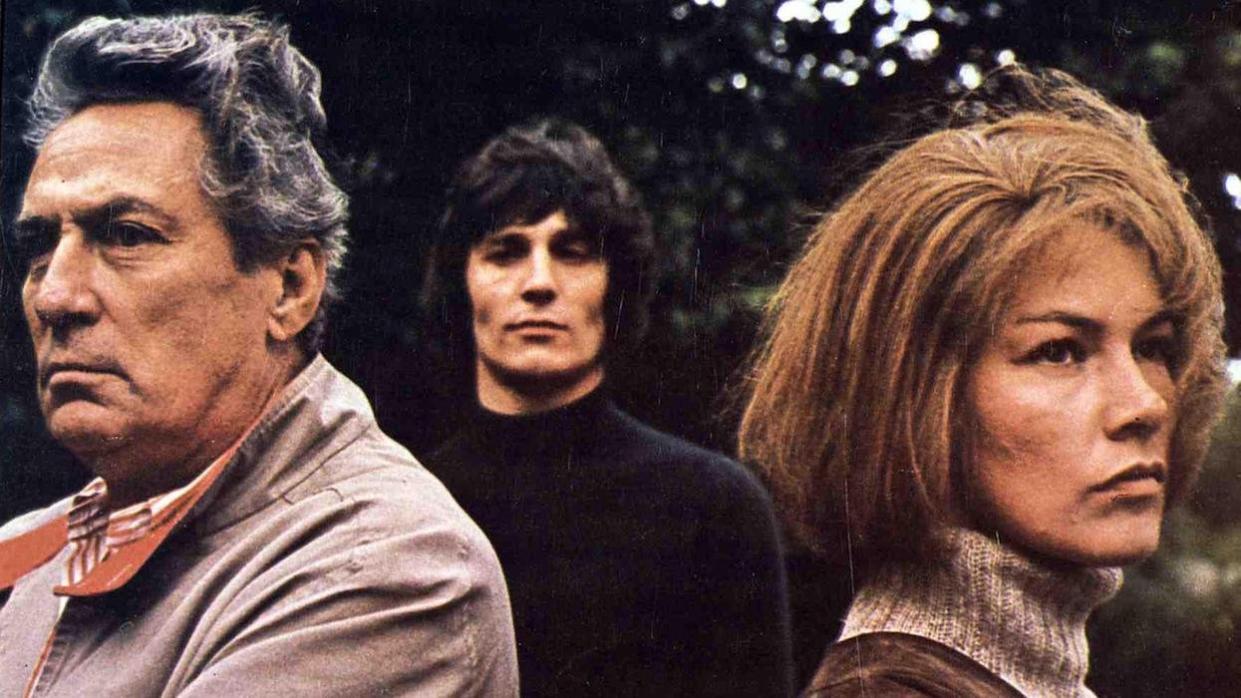Glenda Jackson, Revered Actress, Politician, and LGBTQ+ Ally, Dead at 87

- Oops!Something went wrong.Please try again later.
- Oops!Something went wrong.Please try again later.
- Oops!Something went wrong.Please try again later.
Glenda Jackson, the acclaimed British actress and liberal politician who died Thursday at age 87, appeared in multiple LGBTQ-themed films and was a reliable ally in the U.K. Parliament.
Jackson was highly regarded for her stage and screen performances and won Oscar, Tony, and BAFTA awards over the course of her career. She left acting to serve 24 years in the House of Commons, then returned to theater and film.
“As a young woman in the 1960s and ’70s, she drew attention for pushing cinematic boundaries in her portrayals of fiercely independent, even abrasive, female characters, many of whom explore their sexual freedom,” The Washington Post notes in its obituary.
A notable film early in her career was 1971’s Sunday Bloody Sunday, in which she played a woman whose lover (Murray Head) is also in a relationship with a gay man (Peter Finch). Helmed by gay director John Schlesinger, it offered a sympathetic portrayal of gay and bisexual characters that was rare for the time. And it made clear that Jackson’s and Finch’s characters knew they were sharing a lover and didn’t care.
The same year saw the release of Ken Russell’s The Music Lovers, with Jackson playing Nina, the wife of composer Pyotr Ilyich Tchaikovsky (Richard Chamberlain). The film portrays Tchaikovsky trying to repress his homosexuality through marriage.
Jackson was Oscar-nominated for Sunday Bloody Sunday but lost to Jane Fonda, who won the Best Actress award for Klute. Jackson won the Best Actress Oscar twice, though, for 1969’s Women in Love, an adaptation of D.H. Lawrence’s novel, and 1973’s A Touch of Class, a romantic comedy that costarred George Segal. She was nominated again for Hedda, a 1975 release based on Henrik Ibsen’s play Hedda Gabler, losing the Oscar race to Louise Fletcher in One Flew Over the Cuckoo’s Nest.
Another 1970s film of Jackson’s was a 1974 adaptation of Jean Genet’s play The Maids, about two sisters (whose relationship is somewhat more than sisterly) working as servants and plotting to kill their employer.
It was a particularly fruitful decade for Jackson, who won plaudits for playing Queen Elizabeth I in the 1971 BBC miniseries Elizabeth R. It was broadcast on public television in the U.S., bringing Jackson an Emmy Award.
Her acting career continued strong into the 1980s, but in the following decade she entered U.K. politics, having been outraged by the conservative policies of Prime Minister Margaret Thatcher, who held office from 1979 to 1990. Thatcher had wreaked “destruction,” Jackson said.
As a Labour Party member of Parliament, Jackson supported progressive policies, including marriage equality and the nondiscrimination law known as the Equality Act. She was a member of Prime Minister Tony Blair’s Cabinet for two years in the 1990s but lambasted Blair’s cooperation with the U.S.-led war in Iraq in the next decade. She also ran unsuccessfully for mayor of London.
She once likened politics to acting, saying, “The best theater is trying to tell the truth. And the best politics is trying to tell the truth.”
Eventually, she said she missed the collaborative nature of acting, and she returned to the stage. In 2016, at age 80, she played the title role in Shakespeare’s King Lear in London, having seen another woman play the part in Spain. She appeared in the production on Broadway in 2019. In The New York Times, Ben Brantley praised her “powerful and deeply perceptive performance.”
Another Broadway triumph was her appearance in 2018 in Edward Albee’s Three Tall Women, which brought her a Tony Award.
One of her last projects was narrating The Microcosm, a film based on Maureen Duffy’s 1966 book about a beloved London lesbian bar, the Gateways Club. It premiered at London’s LGBTQ+ museum, Queer Britain, in 2022.
“Maureen is one of the most talented writers of her generation, and yet she remains, in my opinion, underrated,” Jackson said upon the release, according to Variety. “It has been a privilege bringing her words to life.”
Jackson’s survivors include a son, journalist Dan Hodges. She married actor and stage manager Roy Hodges in 1958, and they divorced in 1976. “Men are awfully hard work for very little reward,” she once said.
Pictured, from left: Peter Finch, Murray Head, and Glenda Jackson in Sunday Bloody Sunday

